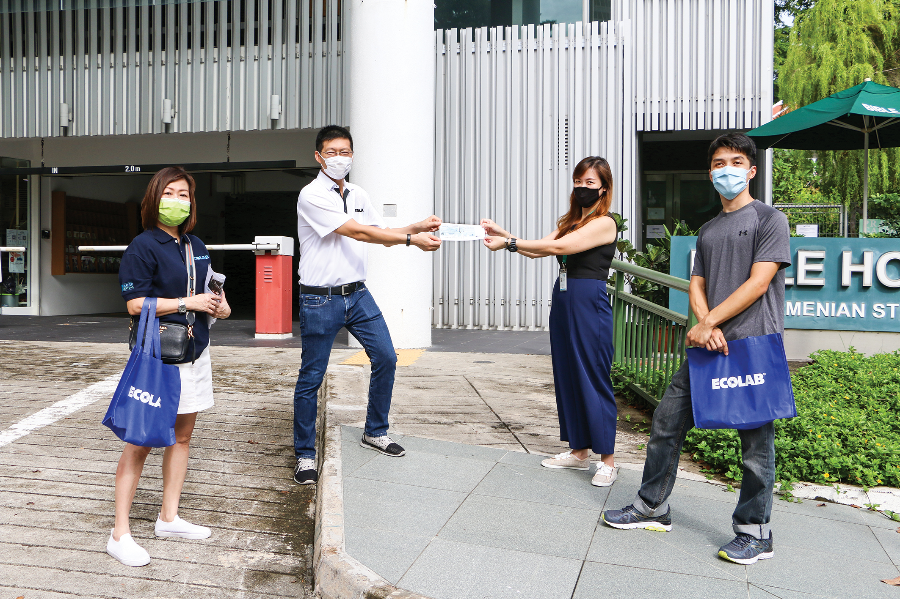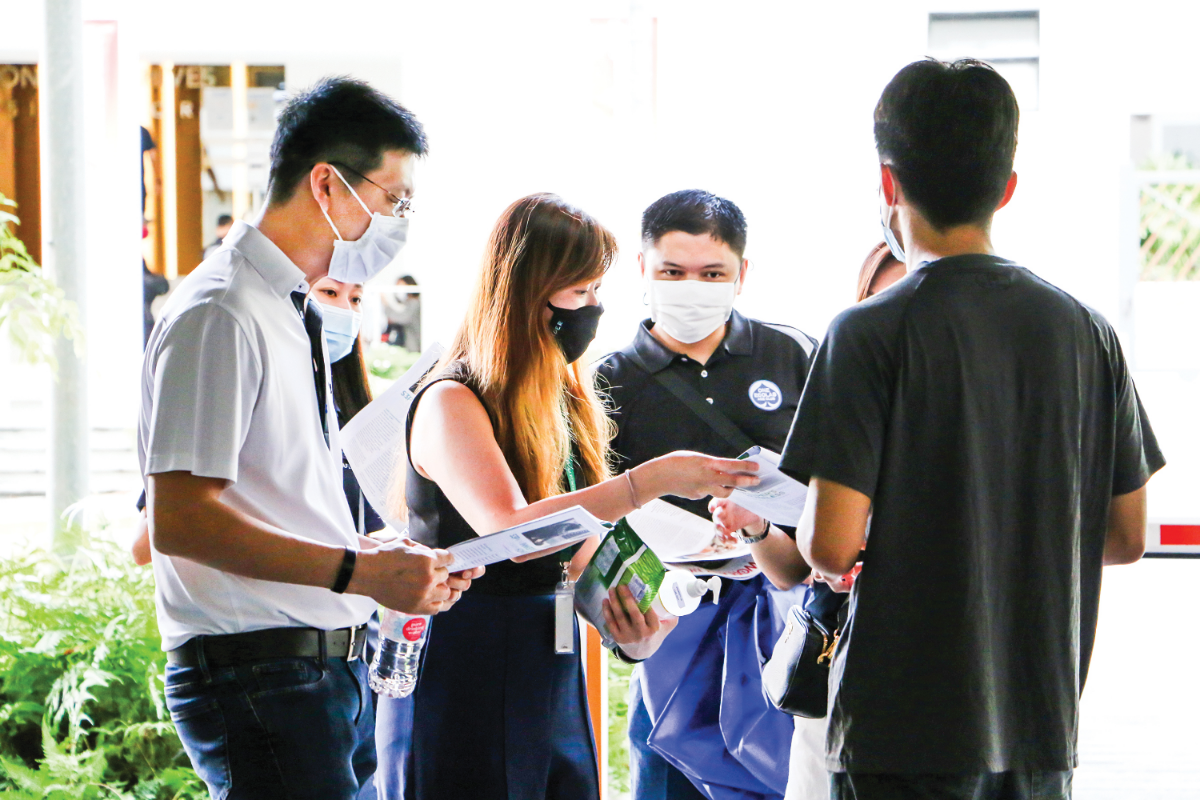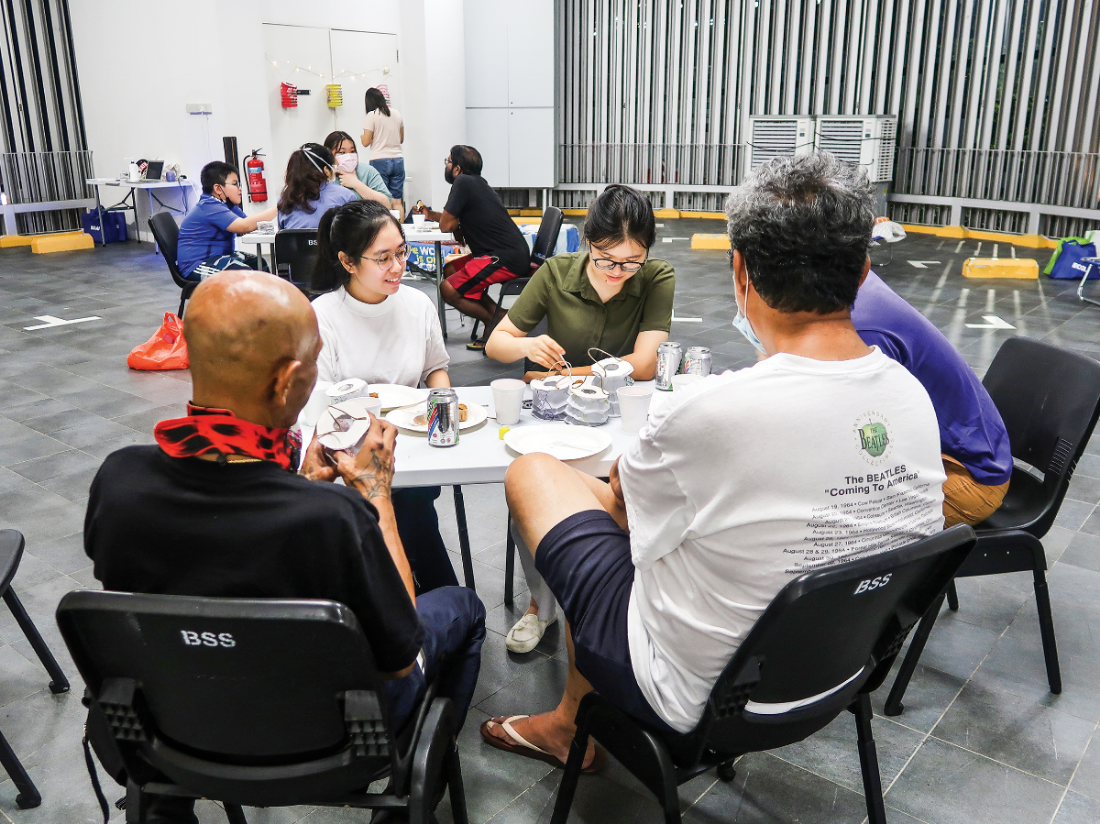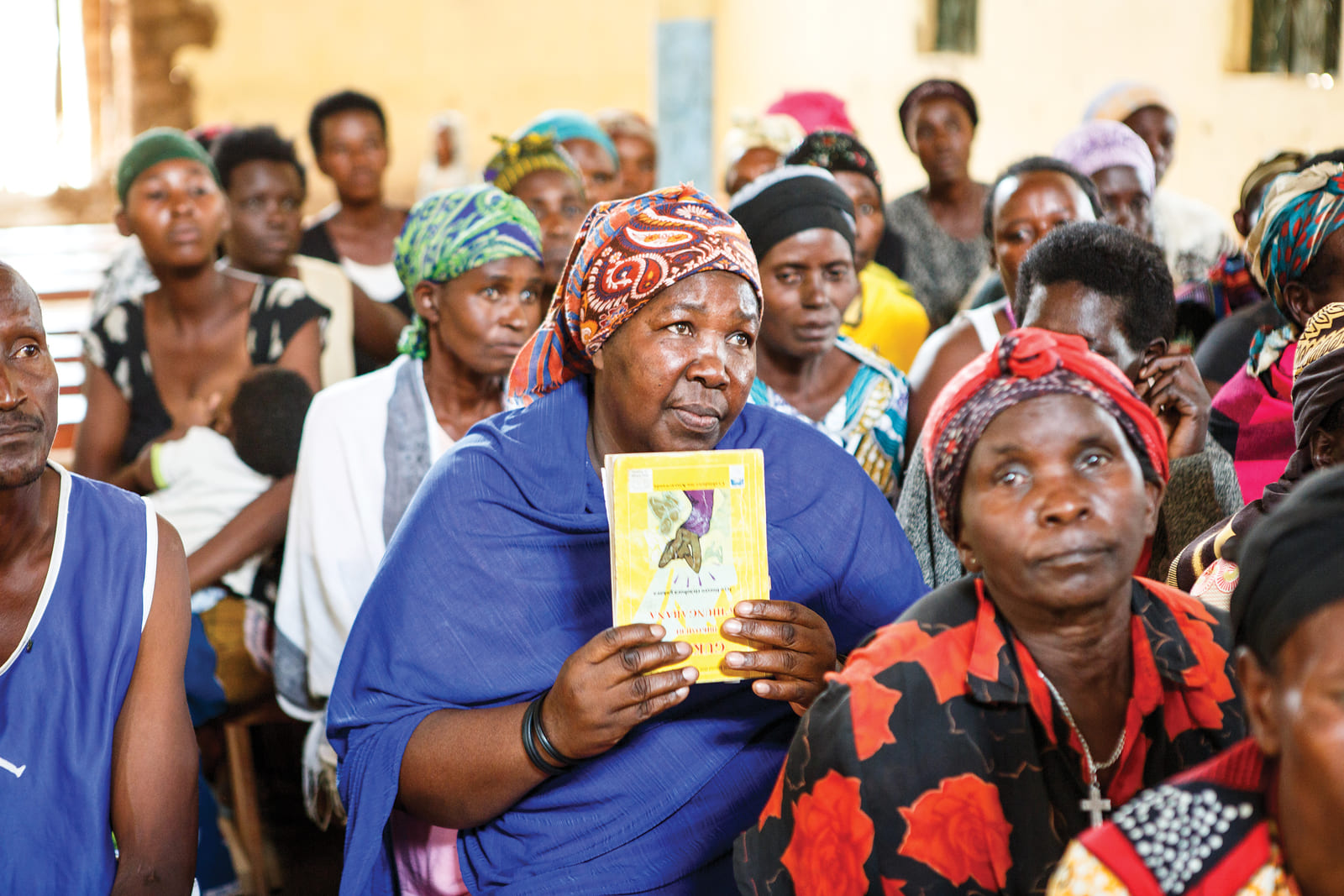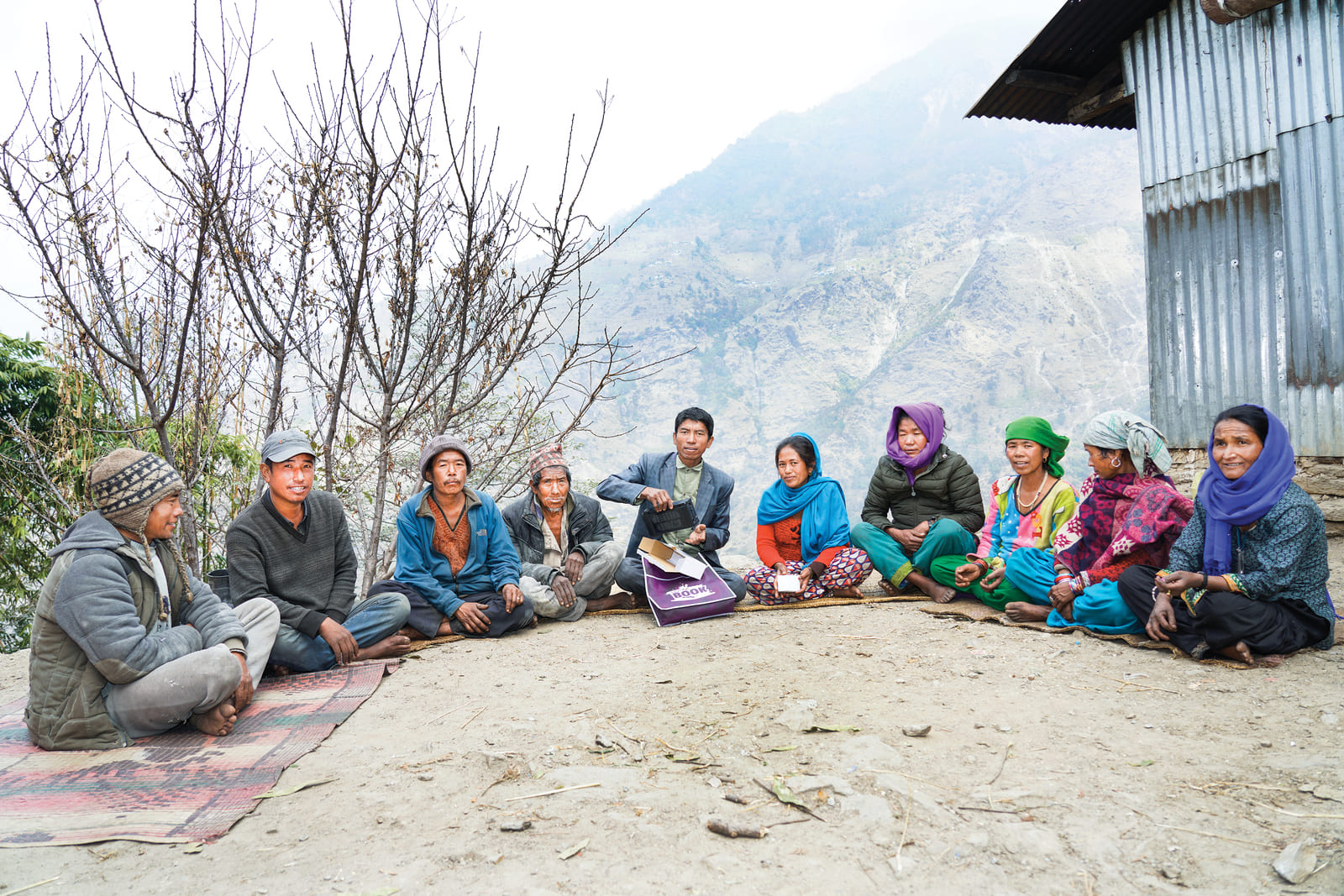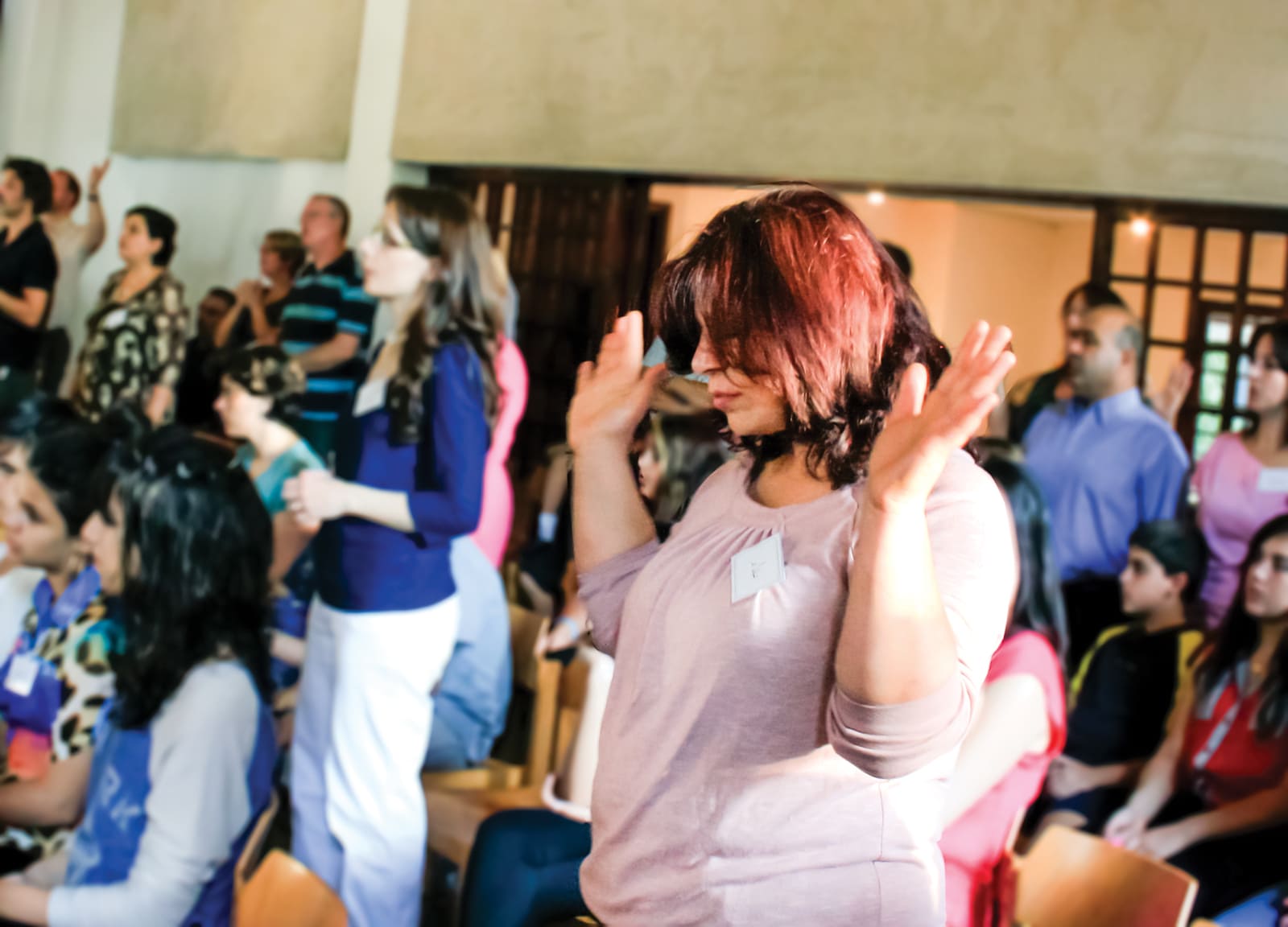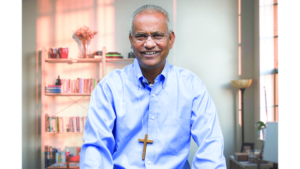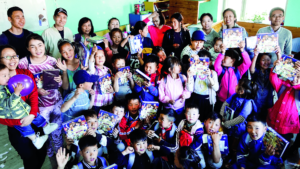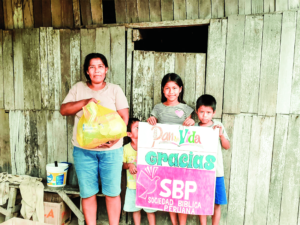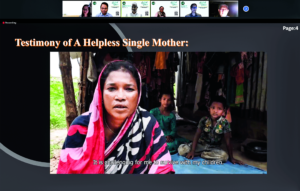Feature Article: Caring for the Homeless Amidst Hard Times
This article was originally posted in our December 2020 Word@Work.
“In all things I have shown you that by working hard in this way we must help the weak and remember the words of the Lord Jesus, how he himself said, ‘It is more blessed to give than to receive.’” — Acts 20:35
With the outbreak of COVID-19 and the resulting economic fallout, many have had to face unforeseen challenges. Amidst these trying times, the homeless are left especially vulnerable, as they lack the necessary resources to protect themselves.
According to figures from the Ministry of Social and Family Development (MSF), there are about 300-385 rough sleepers who have received help from the government each year between 2016 to 2018. SowCare complements existing government efforts to help these individuals, who have little to no resources to support themselves, especially in these unprecedented times.
To that end, as a core partner of Hope Initiative Alliance (HIA), SowCare is supporting The Innkeeper’s Project—organised by New Hope Community Services and HIA—to show holistic care for the homeless. Through the generosity of our partners and donors—such as CDC Funds, SG Strong, and OSCAR@SG Fund—we have managed to provide various essential items such as floor mats, foldable tables and reusable masks to support the needs of almost 260 rough sleepers.
SowCare has also collaborated with MSF to set up the Safe Sound Sleeping Places (S3P) initiative for the rough sleepers.
Our various partners in this S3P initiative conduct routine visits to S3P@Bible House. On 11 September, EcoLab and Singapore Youth for Christ visited S3P@Bible House. EcoLab donated $5,000 and 10 care packs to the rough sleepers residing at S3P@Bible House. Representatives from EcoLab were given a tour of S3P@Bible House. Mr Surachet Tanwongsval, Vice President and General Manager of EcoLab, commended SowCare’s efforts in caring for the homeless: “It was a humbling experience for me as I always thought that there’s no homelessness in Singapore. Going to SowCare showed that there’s a lot of less unfortunate Singaporeans that greatly benefit from the work they’ve done, in a short amount of time. I’d like SowCare to keep up this effort.”
After visiting the Bible House, Ms Irene Nah, one of the staff members of EcoLab, also commented, “It was an eye-opener for me too. The organisation has it well planned, including facilities for their daily routine and necessities. They were also well prepared on the COVID-19 measures, practising safe distancing and temperature taking.”
Aside from EcoLab, the Singapore Youth for Christ also collaborated with SowCare to organise a Mid-Autumn Celebration for the individuals residing at S3P@Bible House on 11 September. The evening’s programme consisted of dinner and an art and craft session, where each participant was given the opportunity to make their own lanterns. A mooncake and tea appreciation session was also held for volunteers to engage in a time of fellowship with them and to bring them some cheer.
In the hope of bringing light into these dark times, on 14 and 15 October 2020, SowCare organised a special Zoom meeting with the MSF. The purpose of the meeting was to encourage churches to open their doors to the homeless.
In line with our partnership with MSF, SowCare is working with MSF and the Singapore Land Authority to secure a suitable site for a shelter for rough sleepers.
On behalf of the beneficiaries, we would like to thank all our supporting donors and partners for their generous donations and express our deep gratitude to our volunteers who have helped in various capacities.
As a Body of Christ, let us continue to assist the needy in these challenging times. As Jesus said, “Truly, I say to you, as you did it to one of the least of these my brothers, you did it to me” (Matt 25:40). While we ponder Jesus’ words, let us remember that we are doing it for Christ and readily render help to those in need.
Feature Article: Stories of Hope from the Bible Mission
Lives Forever Changed: Stories of Hope from the Bible Mission
This article was originally posted in our December 2020 Word@Work.
“The Word became flesh and made his dwelling among us. We have seen his glory, the glory of the one and only Son, who came from the Father, full of grace and truth.” —John 1:14
More than two thousand years ago, Jesus Christ was born on Christmas day, where he took on human form and lived amongst men for thirty three years before his death on the Cross. The insurmountable love that God has for His people is evidenced by the act of sending Jesus down to earth—knowing full well that he would die to save humanity from their sin (Romans 5:8).
As we give honour and glory to humanity’s Saviour for the precious gift that He has bestowed upon us, we are also called to give as we have received (Matthew 10:8). Burdened by the need to share the Good News, Bible Societies all around the world are working relentlessly to spread the Gospel and the love of Christ—through the provision of the Word, Bible advocacy programmes and meeting the needs of impoverished communities.
In this edition of Word In Action, we bring to you stories and testimonies from Bible Societies all over the world—individuals and communities who have been touched by the Bible Mission.
Uganda
Located in Central East Africa, Uganda has a population of more than 45 million, of which 30.2% consist of children aged six to 14. In spite of their tender age, many of them have been faced with a myriad of problems, such as neglect, drug abuse, rape and hard labour. Some of them have also become victims of child trafficking. To combat these problems, the Church in Uganda has been developing programmes to bring the Word of God to these children. To increase the reach of their ministry, the Bible Society of Uganda has been working with the local Church to organise Bible advocacy activities like Bible Quizzes and Bible Recitals. Bibles are also given to these children so they may read the Word of God on their own and encounter the love of God in an intimate manner. Armed with the Book of Promises, it is hoped that these children will be better equipped to face life’s challenges.
Bangladesh
Another country that has dedicated much of its Bible Mission work to Bible distribution is Bangladesh. In a country where Christians make up only 0.4% of the population, the Bible Society of Bangladesh has been translating the Bible into languages that are understood by the different language groups. To reach the illiterate communities living in remote areas, they are also in the midst of producing audio Bibles, so that even more will be able to hear the Word of God. Thus far, their audio Bibles—available in different languages—have been able to impact about 900 individuals, which would not have been possible without the help of our generous donors and supporters.
Israel
Life is full of uncertainties but there is a certainty of hope when we cling on to the Lord and His promises (Jeremiah 29:11). A teacher from Nazareth, Israel discovered this truth through one of the programmes by the Arab-Israeli Bible Society. She was suffering from anxiety and sleeplessness due to worries about all aspects of her life, especially about her children, who were serving in the medical field in these perilous times of the COVID-19 pandemic. She was also constantly fretting about her future and the future of her children, resulting in problems in her relationships with others.
Through the invitation of a friend, she attended a workshop on anxiety conducted by the Arab-Israeli Bible Society. She said, “Participating in the session at the Arab-Israeli Bible Society Centre was beneficial for me. I received a lot of information and tools to deal with my anxiety and concerns besides immediate comfort.” One of the pastors she met at the centre encouraged her to hold on to the teaching and explained to her about God’s acceptance of us, no matter what. Inspired and encouraged, she then committed her life to the Lord. She was also given a version of the New Testament and urged to pray, read the Bible and participate in church services.
This is but one of many testimonies from Israel, the Holy Land. Despite Israel being the birth place of Jesus and the site of many miracles He performed, only two percent of Israel’s population are Christians. As such, there is still much to be done in Israel to further the Bible Mission.
As Paul said in Galatians 6:9, “Let us not become weary in doing good, for at the proper time we will reap a harvest if we do not give up.” Staying true to our mission to make the Word of God known to all peoples, we endeavour to continue being a vessel of blessing to the nations. We would like to invite you to partner with us so that we can reach more countries in need of the Word and of practical help. Visit bible.org.sg/donate to contribute to our cause.
Feature Article: Reaching The Forgotten With The Word
Despite having a population of about 164 million, only 0.4% of people in Bangladesh identify as Christian. Even though Christianity is largely considered a minority religion in the country, this does not deter Bishop Philip Adhikary from dedicating his life to spread the Gospel to those around him.
Currently serving as the Chairman of the Bangladesh Bible Society and the Chairman of the Christian College of Theology in Bangladesh, he also plays the role of an evangelist and Bible distributor—the main ways in which he fulfils his calling to proclaim God’s Word in Bangladesh.
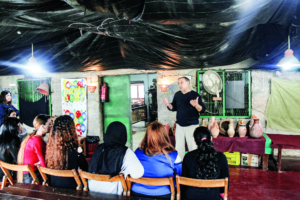
In this edition of Word In Action, we speak with Bishop Adhikary himself to find out more about Bible Mission work in Bangladesh, as well as its partnership with The Bible Society of Singapore (BSS) to translate the Word Intake for Spiritual Edification (WISE) Audio Bibles into Bengali.
As the Chairman of Bangladesh Bible Society, what are some of the challenges you face in your ministry?
“My vision is for all to come to know God’s Word,and for everyone’s salvation. That is why we’re very involved in Bible distribution—to Christians, to the community, and our neighbours in Nepal and Bhutan. However, sometimes they do not accept it when we say that God is Holy, and His Word is Holy. But we pray that God will provide good opportunities to build good partnerships with these communities so we can spread His Word.”
Could you share more details about the Bangladesh Bible Society’s partnership with The Bible Society of Singapore (BSS)?
“We are working to adapt the material from the WISE Audio Bibles for use in Bangladesh. Audio Bibles are very important because some aren’t interested in reading, some people—especially the elderly—are unable to read, and some are unable to see. But with Audio Bibles, they can listen to the Word, and they can still grow spiritually.”
This year, BSS has pledged $40,000 to support Bible Mission work in Bangladesh, where the Bangladesh Bible Society intends to run Bible Listening Programmes for the illiterate, as well as the poor and needy. The long-term goal of this programme is to create a lasting impact in the lives of the participants—which will not only equip them to read the Word of God but also empower them with vital skills that could create more employment opportunities for those in need. Aside from ministering to the local communities with Scripture engagement, there will also be a distribution of daily essentials and supplies to the poor and needy in order to provide them with holistic care.
Apart from partnering with BSS to reach the nations with the Living Word, Bishop Adhikary will also be working with SowCare and the Alliance of Guest Workers Outreach (AGWO) to show care for the Bangladeshi guest workers in Singapore.
Caring for the Nations Amidst COVID-19
The sudden outbreak of COVID-19 this year has resulted in many families struggling to feed themselves all over the world. As of the time of writing, Bangladesh has seen more than 300,000 confirmed cases. To respond to the needs of the local communities, the Bangladesh Bible Society has begun an emergency food assistance programme to help 3,000 families living in remote villages. Some of the items distributed to these families include rice, onions, potatoes and cooking oil. Hygiene kits will also be given to these families. The cost of these supplies—which will help to sustain a family for 2 weeks—is $20. In addition, plans have also been made to start a Scripture and Audio Bible distribution exercise, with a target of 5,000 Bibles. Each Bible costs a mere $9, taking into account production and delivery fees.
Due to the ripple effect of the COVID-19, many other countries are also in dire need of help. In Mongolia—a country where 28.4% of the population lives in poverty—many are rendered helpless as they have lost their jobs as a result of the virus. The loss of all income for these communities means that putting food on the table has become a nearly impossible task.
A similar situation is seen in Peru, where 45% of the urban population live in shanty towns. As of the time of writing, the country has seen almost 613,000 cases of COVID-19, which has had a devastating impact on the population in terms of their safety and economic security.
In these difficult times, the Bible Societies in these countries have stepped up to provide for the needs of these struggling communities, through the provision of food and Scripture—to meet both the physical and spiritual needs of these people.
Ms Dina Katanacho, Director of the Arab-Israeli Bible Society, shared that COVID-19 caused many families to struggle with a mixture of feelings—fear, anxiety, stress, and anger. Many of them were also struggling with maintaining their faith during quarantine. To respond to these new needs, the Arab-Israeli Bible Society organised a series of online workshops to equip parents with skills to bond with their children and encourage them to persevere in the faith.
Although some steps have been taken to mitigate the struggles and problems of these people groups, there is still much to be done in order to effectively minister to them and transform theirlives. BSS hopes to be a beacon of light to these people during these dark times; we hope that you will join us in making a difference today!
